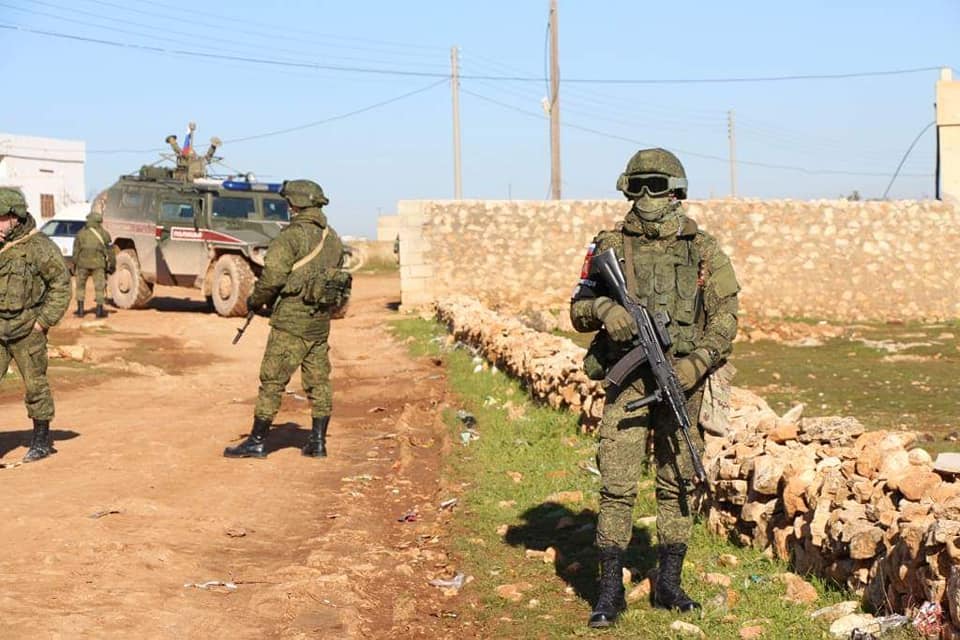As if the Syrian Conflict couldn’t get any more complicated, a new proxy war is brewing between several foreign powers in the northern part of the country.
Speaking from Damascus on the condition of anonymity, a government source told Al-Masdar that two new alliances have emerged in northern Syria, with one led by Iran and Turkey and the other Saudi Arabia and Russia.
According to the source, Turkey and Iran have forged a pact to not only carry out a joint operation in northern Iraq, but also, potentially, in northern Syria.
Meanwhile, Russia and Saudi Arabia are attempting to work out a deal that would see the Syrian government and Kurdish-led Syrian Democratic Forces reach a peaceful settlement.
Saudi Arabia maintains close ties with several Arab tribes allied to the SDF, including the Shammar Tribe, who arguably the most powerful tribe in northern Syria.
Syrian Oil Crisis
Iran is the biggest foreign supplier of oil to the Syrian Arab Republic; however, due to the ongoing sanctions against both countries, Tehran has been unable to send their oil tankers to the ports in Latakia and Tartous.
Enter Turkey, who, depsite being opposed to the Syrian government, is working with Tehran to possibly find an alternative way to ship oil to Syria.
According to the source, one way to get Iranian oil to Syria is through Turkey’s western ports.
Iran is allowed to ship oil to Turkey as long as their tankers do not deliver anything to Syria.
In turn, the Syrian government would pay money to transport the oil from Turkey through the rebel-held areas.
The source pointed out that following the Iranian Foreign Minister’s visit to Damascus last week, he immediately flew to Ankara where he met with his Turkish counterparts to deliver messages from the Syrian government.
Saudi Influence
Saudi Arabia is arguably one of the most powerful countries in the Middle East and one of the key peace brokers in nearly every conflict in the region.
Russia, who maintains a strong relationship with the Gulf kingdom, has often relied on the Saudi government to facilitate peace talks between the countries in the Middle East.
The Saudi government is also at odds with Turkey and Qatar, especially after the death of journalist Jamal Khashoggi last October.
Seeing an opportunity to possibly end the hostilities between the Syrian and Saudi governments, the Russians are facilitating a potential rapproachment between Damascus and Riyadh.
The Syrian government needs reconstruction funds and they need Saudi Arabia’s influence to possibly broker a deal with the U.S.
While Syria is a close ally to Iran, they have faced incredible opposition from Turkey and Qatar, who are arguably the two biggest supporters of the Syrian government’s enemies.
Turkey, Iran, and Qatar have their own alliance in the Middle East, which is mostly focused on the Palestinian cause.
However, Syria has benefited little from this alliance, and with the ongoing fuel crisis and lack of reconstruction funds, they may choose the path set forth by the Russians.
Russia and Turkey
The armed forces of Russia and Turkey are currently working together to maintain peace in northwestern Syria.
However, the Russian military is reaching its breaking point, especially with the ongoing presence of rebel groups inside the demilitarized zone.
The rebel groups were supposed to withdraw from the demilitarized zone last October, per the September 17th Sochi Agreement – they have refused to do so.
Turkey contends that the Syrian military is to blame for the violence because they attack the rebel groups that refused to adhere to the Sochi Agreement.
Both the Syrian and Russian armed forces hold the rebel forces in violation of the agreement and consider any jihadist presence in the demilitarized zone as a clear breach of any deal.
With Hay’at Tahrir Al-Sham’s latest attacks in northwestern Hama and western Aleppo, it is very likely that the Syrian government, with help from Russia, will carry out an operation to clear these areas.
Syria’s Move
The Syrian government has a difficult decision to make, one of which could alter the course of the war.
According to the source in Damascus, the government sees the prospects of rapprochement with Saudi Arabia as more alluring than joining Iran in a coalition of countries sympathetic to the Muslim Brotherhood.
The Muslim Brotherhood was at war with the Syrian government for several years until they were forced into exile following the Siege of Hama in 1982.
Both Qatar and Turkey have lent their support to the Muslim Brotherhood during the Arab Spring and to the Syrian opposition.
Saudi Arabia and their Gulf allies view the Muslim Brotherhood as a terrorist organization; this is also the case with Egypt, who the Syrian government has relied on for third-party talks.
The Syrian government’s potential decision may not sit well with Iran, but at this juncture in the war, the sanctions and lack of funding are taking a toll on Damascus.



